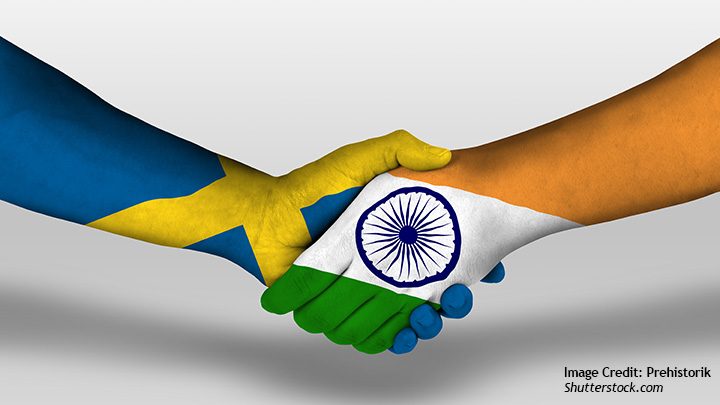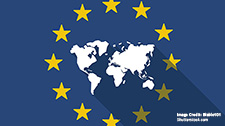India-Sweden Strategic Compass, Vol.3, No.1, January-February 2024

Filip Borges Månsson, Erika Rutonen, Ana Carolina De Oliveira Assis, Giorgia Piovesan and Jagannath Panda
How are India and Sweden positioning themselves in the year 2024? The year 2024 is historic in terms of elections being held throughout the world. About half of the world’s population is expected to vote, with more than 60 countries holding elections. This includes India (likely in April/May) and the EU (June) going for parliamentary elections. The US elections in November are eagerly awaited, too, not least because of the potential Joe Biden-Donald Trump contest.
Some consequential polls in Bangladesh, Indonesia, and Taiwan, for example, have already indicated the trends for democracy. In Bangladesh, the controversial return of Prime Minister Sheikh Hasina is good news for India-Bangladesh ties, which have been on the rise despite China’s clout. For Sweden, too, it would mean a consistent policy with Bangladesh, with which Sweden has “multifaceted and growing” ties.
In Indonesia, Southeast Asia’s largest democracy, former Defense Minister Prabowo Subianto’s win, with a rebranded image, might likely lead to pragmatic policies amid an expansionist China and a fragile Indo-Pacific. PM Modi’s post-election message highlights that the two sides will strengthen their Comprehensive Strategic Partnership.
However, it is in Taiwan that the democratic process has truly been boosted with the return of the ruling Democratic Progressive Party (DPP), as Lai Ching-te secured a historic third consecutive win for his party. India, which has just signed a migration and mobility pact with Taiwan, has been positive about the ties with Taiwan taking a more strategic orientation, highlighted by India’s representative to Taiwan praising Taiwan’s democratic resilience. The EU, too, has offered its congratulations to the DPP. Sweden’s 2024 foreign policy statement highlights a common European approach in terms China policy. Sweden has also called out China’s “conduct” toward Taiwan as worrisome. However, for both India and Sweden, the lack of diplomatic ties with Taiwan is unlikely to change, as that would destabilize the Indo-Pacific as a whole.
Finally, with India’s ruling party majorly expected to win the upcoming national elections, India’s ties with Sweden, as well as with the NB8 and the EU, are likely to continue on the upward trajectory in 2024 and beyond.
Read the SCSA-IPA’s bi-monthly Newsletter- India-Sweden Strategic Compass- to understand how India and Sweden are positioning themselves in 2024.
Related Publications
-
Navigating the Indo-Pacific: How Australia and the EU Can Partner for Peace, Stability, and Prosperity
To navigate the choppy waters of the Indo-Pacific, the EU and Australia must be on the same wavelength regarding shared interests in rules, values, and an open and liberal economic […]
-
Report of Webinar on China’s Himalayan Hustle – Part I: Can China Achieve Infrastructural Hegemony?
On June 13, 2024, the Stockholm Center for South Asian and Indo-Pacific Affairs (SCSA-IPA) of the Institute for Security and Development Policy, Stockholm, hosted a webinar “China’s Himalayan Hustle Part […]
-
Trade, Connectivity and Supply Chains in EU-India Relations
In the decade and a half since 2007 when the EU and India first started their FTA negotiations, the world economic order has undergone a sea change. During that period, […]
-
ISDP Annual Report 2023
ISDP’s Annual Report for the year 2023. We look back on 2023, a year in which tensions and conflicts captured the strategic space in ISDP’s focus areas, making headlines around […]
-
NAVIGATING THE CHINA CONTEST: EU’S MARITIME ROAD TO 2030 AND MIDDLE POWERS
Europe’s strategic presence in the Indo-Pacific has become a matter of great substance in current global politics. The emergence of China as a disruptive maritime power, especially with its hardening […]




